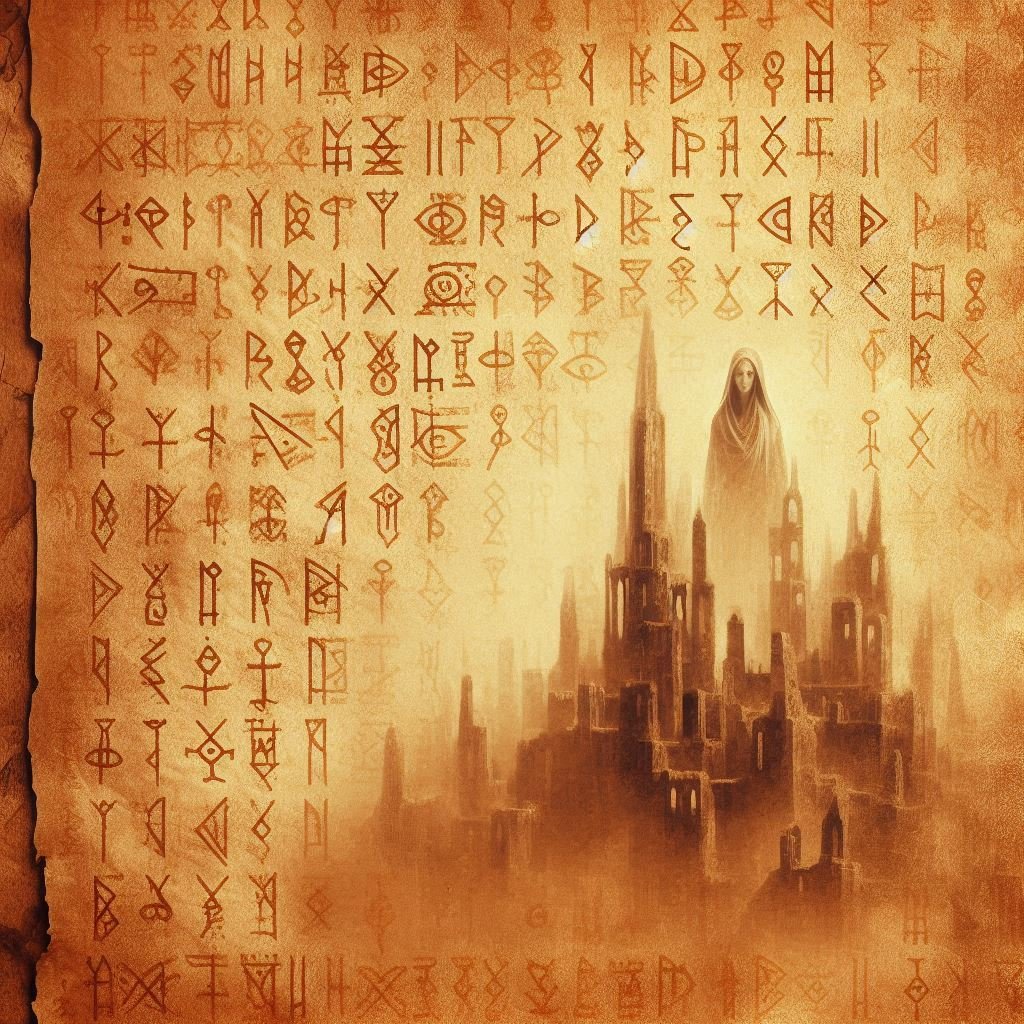Listen to “The Book That Rewrites History” on Spreaker.
Alright, so, today’s story doesn’t take us to a crime scene, or into the middle of the ocean to investigate a missing ship, or to some frozen mountain where hikers disappeared under mysterious circumstances.
No.
This one is different.
This one takes us to a dusty corner of history… or maybe I should say, a dusty corner of fake history.
It’s the story of a single book — a manuscript — that came out of nowhere in the 1800s. And inside, it claimed to tell the history of an entire lost civilization. If it was real, it would completely rewrite human history. But if it wasn’t… then it was one of the boldest hoaxes ever pulled off.
This is the strange, dark, and mysterious case… of The Oera Linda Book.
The Arrival of Something Impossible
It’s the year 1867, and we’re in Friesland, a quiet northern province of the Netherlands.
A local man named Cornelis Over de Linden — a shipbuilder — walks into the provincial library carrying a large, worn-out manuscript.
Now, Cornelis is not a scholar. He’s not some traveling archaeologist with sand in his boots and a bag full of relics. He’s just a craftsman who works on boats. Which makes what he’s holding all the more unusual.
According to him, this manuscript has been in his family for generations — passed down from father to son — as a secret heirloom. And he says it contains a history so radical, so dangerous, that it had to be hidden from the world for centuries.
The librarian takes the manuscript and examines it.
It’s old.
The pages are yellowed. The handwriting is neat and uniform, but it’s written in an alphabet no one recognizes — strange, runic-looking characters. The binding looks handmade.
It has the aura of something ancient. Like if you stared at it too long, you might hear faint whispers from the past.
Cornelis explains that his ancestors were ordered to protect it. The reason? It told a version of history that would completely shatter the accepted religious and historical beliefs of the day.
The Unfolding Secret
The manuscript is handed over to Jan Gerhardus Ottema, a well-respected Frisian historian and linguist.
It takes him months to work through the symbols, but eventually, he manages to translate enough to get the gist. And what he finds is jaw-dropping.
The Oera Linda Book — as it would come to be called — claims to be a chronicle of the ancient Frisian people, stretching back thousands of years… way before the Egyptians, the Greeks, or the Romans.
It tells of a time when the Earth was ruled by a matriarchal society — women called “Mothers” who guided humanity with wisdom and fairness.
At the heart of this world was a goddess named Fosta, the mother of all life. And somewhere out in the ocean, there was a great continent called Atland.
If that name sounds familiar, it should — it’s basically Atlantis.
According to the book, Atland sank beneath the waves in a massive cataclysm. But before it disappeared, the Frisians — an advanced and peaceful civilization — set sail to bring their knowledge and culture to the rest of the world.
They supposedly invented writing, navigation, and the moral laws of society. They founded cities, taught other peoples, and became the origin of all European languages.
If the Oera Linda Book was telling the truth, then everything historians thought they knew about the origins of civilization was wrong.
The Problem
It didn’t take long for people to start asking… “Okay, but is this thing real?”
First, there was the language. It didn’t match any known ancient language — but oddly, it looked a lot like Old Frisian, with some made-up words sprinkled in. Almost like someone in the 1800s tried to make Old Frisian look even older.
Then there was the history. The book talks about an empire lasting thousands of years… but there’s no archaeological evidence for it. No ruins, no pottery, no weapons, no inscriptions. Nothing.
And Atland? Geologists said there was no sign of a massive continent disappearing in the last few thousand years.
Finally, some of the ideas in the book sounded suspiciously… modern. Some passages talked about freedom and democracy in ways that lined up with 18th and 19th-century political debates — not ancient thinking.
In other words, it was starting to look like the Oera Linda Book wasn’t ancient at all.
The Believers
But here’s where it gets interesting.
Even as historians began to call it a hoax, the book started attracting a loyal group of followers.
To some people — especially those interested in Nordic or Germanic heritage — the story was intoxicating. A pure, wise, ancient European race who spread civilization to the world? That was a very appealing origin story.
For others, the matriarchal, goddess-centered society offered a vision of a lost golden age that modern society could learn from.
And for some… the fact that mainstream scholars rejected it only made them believe it more.
They said the truth was being suppressed. That the Oera Linda Book was too dangerous for the academic establishment to acknowledge.
Soon, it was being embraced by all sorts of fringe groups — from mystical spiritualists to early nationalist movements. Each one picked out the parts they liked and ignored the rest.
Who Made It?
By the late 1800s, almost all serious scholars agreed: the Oera Linda Book was a fake.
But if that was true… who made it?
The leading suspect is a man named François Haverschmidt — a poet, satirist, and all-around clever guy. He was a contemporary of Cornelis Over de Linden and well-known for his wit.
Haverschmidt knew Frisian history, knew how to write in archaic styles, and had a taste for elaborate pranks.
His possible motive? Some say it was satire — poking fun at extreme nationalism by creating an exaggerated “founding myth.” Others think it was a jab at academics who were too quick to believe grand historical claims.
Whatever the reason, it seems likely he wrote the book in secret, then passed it to Cornelis to present as a family heirloom, giving it a believable backstory.
The Legacy
Today, the Oera Linda Book is almost universally considered a hoax — a very clever, very elaborate hoax.
But that hasn’t killed its appeal.
Even now, you’ll find people online arguing that it’s the real history of Europe. The internet has given it new life, as alternative-history forums and conspiracy channels keep the debate alive.
And in a way, maybe that’s the most interesting part of the story.
Because whether it’s true or false, the Oera Linda Book hits something deep in the human mind — that longing for a lost golden age, for ancient wisdom, for the possibility that history still has secrets left to uncover.
It’s proof that sometimes, even a lie… can last forever.
If you ask me… I think Haverschmidt was having the time of his life when he wrote it. But I also think… part of him probably hoped, deep down, that someone, somewhere, would want to believe it.
And looking at how the story has survived for more than 150 years… I’d say he got exactly what he wanted.




